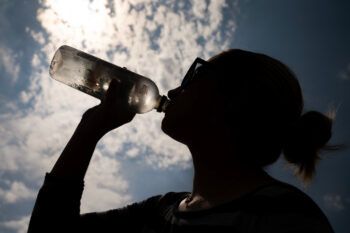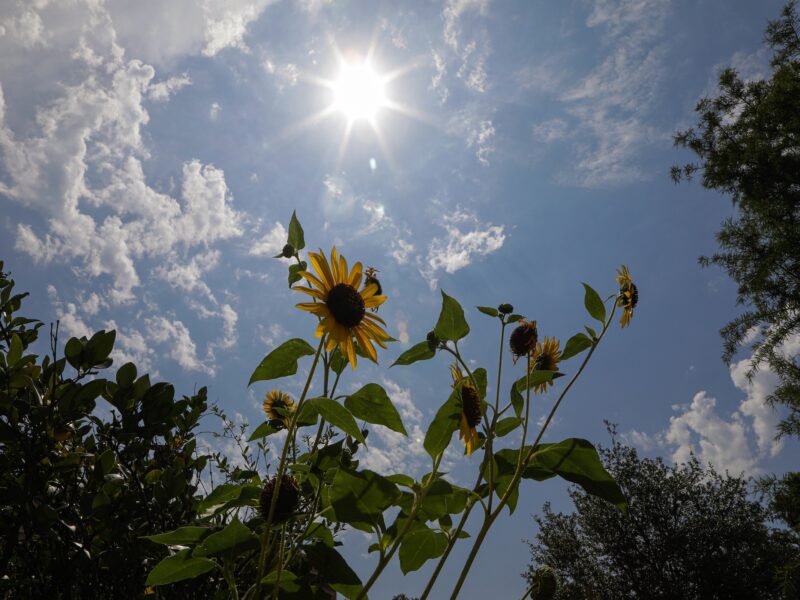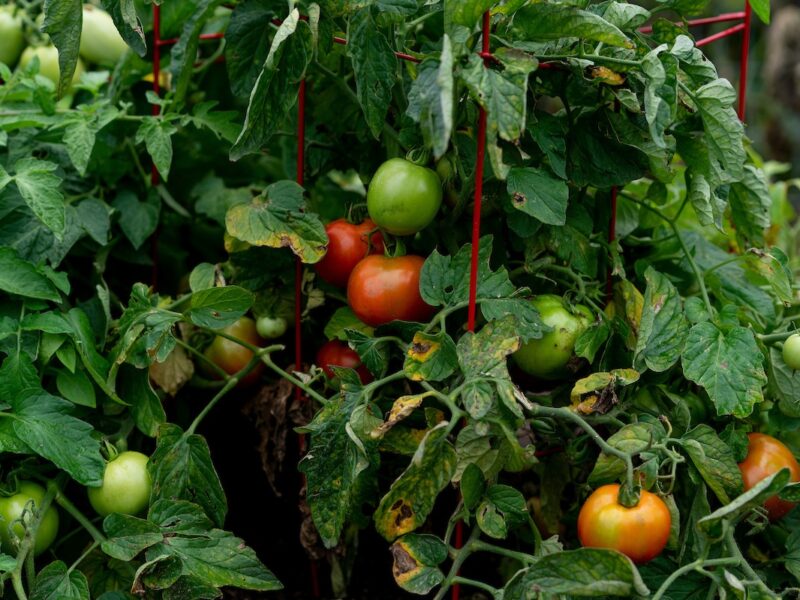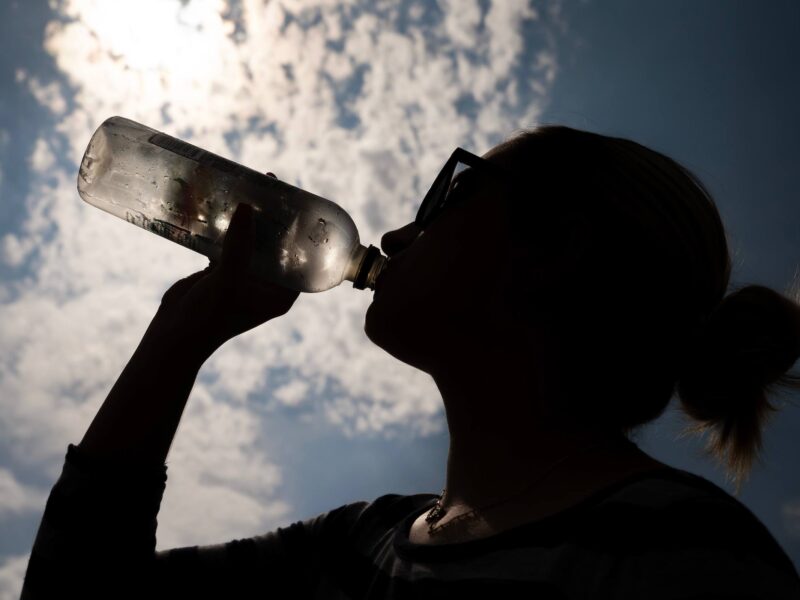Spending Time Outside This Weekend? Here’s How To Stay Safe In The Heat

This weekend, fans across the country will brave extreme temperatures to witness week one of the 2023 college football season in what a Texas A&M physician is calling a “prime setup” for heat-related medical emergencies.
Dr. Robert O. Carpenter, a clinical professor and general surgeon at the Texas A&M University School of Medicine, says he has already seen an increased number of patients suffering from heat-related injuries and illnesses this summer as a historic heat wave rips through Texas and much of the United States. In nearby Harris County, health officials reported the first heat-related death of the year on July 18; by mid-August, the death toll had climbed to 15.
“Our colleagues across Texas and much of the central and southern United States have seen a dramatic rise in the number of hospitalizations, ER visits and deaths related to heat stress over the last couple of months in particular,” Carpenter said.
So whether you’re watching the Aggies take on New Mexico at Kyle Field or just spending some time outdoors this weekend, Carpenter says it’s crucial to understand the toll that extreme heat takes on the human body, and to make a plan to keep yourself and others safe.
Why Are Heat And Dehydration Such A Dangerous Combination?
Under normal conditions, the body exists in a state of internal balance called homeostasis, with the right quantity of fluids, electrolytes and other components necessary for a person to live. The main reason extreme heat is harmful to humans is that it throws off that balance, even turning the body’s own defense mechanisms against itself in more extreme cases, Carpenter said.
Excess heat — anything beyond our regular internal temperature of around 98.6 degrees Fahrenheit — makes it harder for the body to perform key functions, right down to the molecular level. Accordingly, the body tries to shed that excess heat through a sequence of cooling processes, the first of which should be familiar to most.
“One of the first things you can have as an indicator that you’ve had a little bit too much exposure to the heat is the state of your skin,” Carpenter said, noting that it’s important to keep an eye on the skin’s color and temperature.
“If you’re suddenly bright red, that means your body is desperately trying to push that very hot blood out to your skin in order to expel some of that heat,” he said. “From there, what we’ll often see is an excessive amount of sweating, where the body is desperately pumping out a large amount of sweat onto the skin in hopes that that water will evaporate and cool down the skin and the blood that’s coursing underneath it.”
That’s why staying hydrated becomes especially important as temperatures rise, Carpenter said. The more fluids and electrolytes a person loses through their sweat, the more they will need to replenish throughout the day.

Carpenter said those who don’t stay properly hydrated can easily end up in a vicious cycle: “You can actually become nauseated because of dehydration — that’s one of the real signs of it, and that also makes it harder to take in fluids,” he said. “It almost becomes a perpetual motion machine where I feel bad, therefore I can’t drink, which means I lose more water and become even more imbalanced.”
This can ultimately contribute to severe heat-related illnesses like heat exhaustion and heat stroke, as a fluid-starved body takes extreme measures to protect its most critical organs, such as the heart and brain.
“As a person’s system slips farther into relative dehydration, their body desperately struggles to maintain homeostasis by robbing fluids from other systems through decreased blood flow and even shutting down some systems to a minimal state (i.e. kidney function),” Carpenter said.
Without medical intervention, the body eventually loses all ability to regulate its temperature, setting off a downward spiral that can lead to organ failure, permanent brain and muscle damage, and, in the worst-case scenario, death.
“It really can happen very quickly,” Carpenter said. Therefore, if a person is showing signs of serious dehydration or heat-related illness, it is crucial to seek immediate medical assistance.
Why Is This Weekend A Cause For Concern?
While the beginning of football season is an exciting time for many, Carpenter said it also brings a host of extra health risks, as fans who aren’t conditioned to the heat spend long hours in the August sun.

“This weekend is a prime setup for this type of a problem,” he said. “You have a number of individuals who are coming to the game, ranging in age from small children all the way up to folks who are in the 60s, 70s and 80s, most of whom are coming in a relatively dehydrated state at baseline.”
Older fans may have an especially difficult time acclimating to the heat, Carpenter said, as the body loses some of its ability to regulate temperature over time. It doesn’t help that many of the drinks you’ll find at a typical tailgate or pre-game party offer little in the way of hydration, Carpenter said.
“Oftentimes, we here in Texas don’t drink water,” he said. “We drink tea, we drink Dr Pepper, and oftentimes these are things that carry not just sugar, but also caffeine, which can further increase the loss of fluids through urine, perpetuating the risk for dehydration.”
Add alcohol to that mix, and you have a recipe for disaster, Carpenter said. Just like caffeine, alcohol acts as diuretic, stimulating urination and causing the body to shed much-needed fluids.
“That perpetuates the process of dehydration,” Carpenter said. “It’s compounded by the fact that you’re outside in the heat, you’re sweating, you get behind with your electrolyte intake, and your body doesn’t have the opportunity to cool back down. Then you climb into Kyle Field and start yelling, and once again, that perpetuates the process of heat-related illness.”
What Is The Best Way To Stay Safe And Hydrated?
Carpenter’s biggest piece of advice for football fans or anyone going outside this weekend is to “get ahead and stay ahead.” Once you fall behind on fluid intake and begin to feel thirsty, it can be difficult to “catch up” and reach a state of proper hydration. That’s why Carpenter recommends planning ahead and “pre-loading” by drinking additional water in the morning, especially if you’re going to spend time in the heat or engage in any kind of physical activity.
As for what you should be drinking, Carpenter says it’s hard to go wrong with plain water or a drink with electrolytes, especially if you’re going to be sweating. He said electrolyte powders and drink mixes like Liquid I.V. are good as long as they’re combined with the right amount of water — consuming too many electrolytes without enough water can present its own set of health risks.
“It’s not something you just dump in your mouth or mix with a little 8 ounce bottle of water,” he said. “You need to read about it and make sure you’re mixing it in the right concentration.”

Overall, Carpenter said, its best to minimize consumption of sugar and other sweeteners, drinks with lots of artificial colorings, and anything containing alcohol or caffeine. Still, that’s not to say you have to avoid those kinds of beverages altogether, as long as you maintain a healthy balance.
“If you have a cup of coffee, the fact is that you need to match that at least one-to-one, if not two-to-one with water,” Carpenter said. “Similarly, if you have a glass of beer, you need to have a least a glass of water with it just to offset the diuretic effect.”
Carpenter says cool drinks are best since, in addition to providing hydration, they can also help lower the body’s internal temperature. But the most important thing is to keep drinking simple fluids throughout the day, even into the evening, to regain fluid balance and avoid becoming further dehydrated.
It’s also crucial to follow the official guidance of groups like the Centers for Disease Control and Prevention, taking frequent breaks in shaded or air-conditioned spaces, and looking out for the well-being of those around you.
“If a person is talking or behaving in a way they wouldn’t normally, if their skin is excessively sweaty or, even worse, if their skin is dry because their body has no fluids left to give, you need to get them out of the sun,” Carpenter said. “Get them laying down with their legs propped up, keep them talking, get some ice to cool them down, see if they can sip on some fluids, and call for help.”
Those attending Saturday’s game can utilize the AgAssist service to receive immediate medical attention. Others in need of medical assistance are encouraged to dial 911.
“Get assistance,” Carpenter said. “It’s better to potentially be overly cautious than to dismiss potential warning signs of heat-related stress or dehydration. Doing so can be a terrible mistake resulting in permanent life-threatening organ damage and even death.”
Media contact: Luke Henkhaus, henkhaus@tamu.edu





